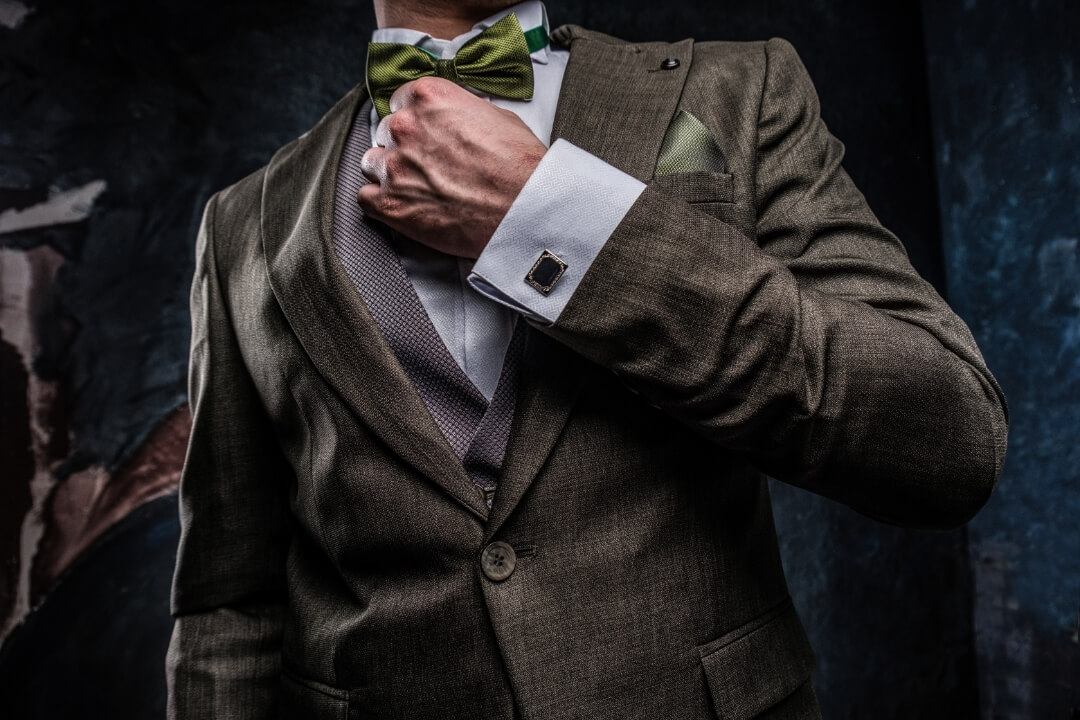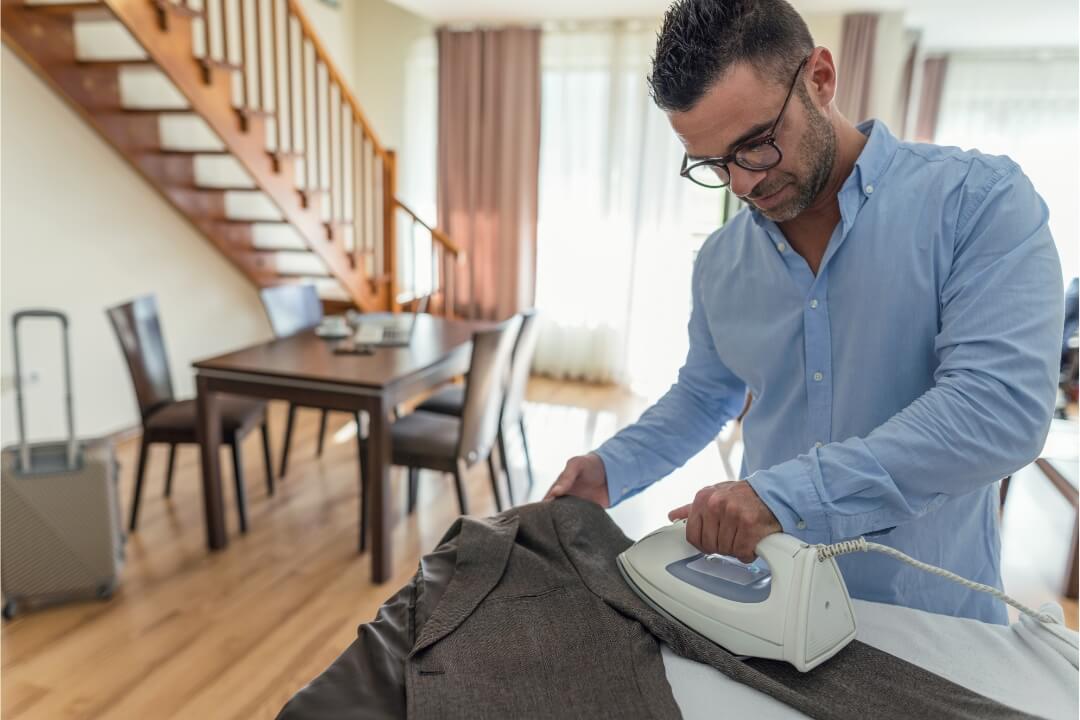
Learn How to Iron a Suit Jacket With 2 Best Techniques and Methods
Have you ever found yourself underdressed for an important event due to a wrinkled suit jacket, unable to steal the show or seal the deal? Worry no more, as we provide you with an all-encompassing guide on how to Iron a suit jacket perfectly, leaving no room for fashion mishaps. From highlighting the importance of a well-ironed suit jacket to introducing all the necessary tools and techniques, this guide has everything you need to learn how to Iron a suit jacket in the best way!
This popular choice adopts a fusion of heat and moisture to achieve a wrinkle free suit jacket. Wave goodbye to creases!
An age-old favorite, this nonstick delight provides a sleek finish as it glides effortlessly over tough fabric for a well-polished look. Check out our iron comparisons and recommendations for the perfect choice.
Selecting the right ironing board for suits can be an underrated game changer. Measurements matter, so choose from a variety of widths and lengths that support your suit jacket and ease the ironing process.
Additional materials Consider amping up your ironing experience with these optional extras that make all the difference:

Inspecting the fabric Before initiating the ironing process, check for labels and fabric types to ensure proper care for your apparel. Don't forget to address any existing stains or fix any damage beforehand. Unbuttoning the jacket and laying it out Properly position your jacket for ironing by unbuttoning it and laying it out on the selected ironing board. Remember that the board plays a pivotal role in providing sample support during the ironing process.
Ideal temperature settings
Opt for moderate heat with the appropriate iron settings for wool, keeping it wrinkle free without scorching the fabric.
Specific ironing techniques:
Press lightly and utilize a moist cloth to prevent fabric damage.
Ideal temperature settings:
Crank up the heat, as cotton can handle high temperatures during the ironing process.
Specific ironing techniques:
Spritz the fabric with water to ensure a smooth glide and an impeccable finish,
Ideal temperature settings:
Also able to tolerate high temperatures, linen requires a more delicate and careful ironing technique.
Specific ironing techniques:
Incorporate a damp cloth and some patience, as these natural fibers may call for a few extra passes with the iron.
Ideal temperature settings:
Keep it low and behold the transformation of an unruly suit jacket into a wearable wardrobe staple.
Specific ironing techniques
To preserve the integrity of your synthetic suit jacket, apply gentle pressure and use a pressing cloth as a barrier between the fabric and the iron.
Working with a perfectly laid out collar can make all the difference when aiming for that sharp, presentable appearance.
Proper ironing movement
Iron from the middle outwards to achieve a wrinkle free masterpiece.
How to iron the lapel without damaging the fabric?
Approach the lapel with caution and a keen eye, ensuring you move the iron with slow, steady strokes parallel to its edge, preserving the fabric's structure.
Essential tips for ensuring crisp edges
Apply slight pressure and use the iron's tip to navigate through the intricate areas of the lapel for impeccable results.
Proper positioning of the jacket on the ironing board
Drape one shoulder over the narrow end of the board to create an even surface, maintaining the jacket's shape.
Using steaming methods when needed
A handy steaming feature on your iron can work wonders on stubborn wrinkles in the shoulder area.
Techniques for wrinkle free & creaseless sleeves
Take extra precautions to avoid creating unwanted creases by moving the iron smoothly and using minimal pressure up and down the sleeves.
Using a sleeve board for the best results:
A sleeve board provides additional support while ironing sleeves, preventing any mishaps or undesirable creases.
Instructions for ironing front and back panels:
Begin with the front panels, keeping an eye on the button areas as you carefully glide the iron. Move to the back panels, applying even pressure and patiently tackling any wrinkles or creases.
Attention To Button Areas And Vents
While giving special attention to make the area around the buttons smooth and crisp, ensure to iron the vents carefully to preserve their shape and structure.
Steaming is a gentler approach that is effective for delicate and textured fabrics, but might not offer the crispness that ironing provides. Ironing can produce sharper results but may also damage certain fabrics if not executed carefully.
Choose steaming for delicate materials and clothes with a lot of details, while ironing is ideal for stubborn wrinkles and achieving a clean, tailored appearance.
By following our comprehensive guide on how to Iron a suit jacket, you have now unlocked the secrets to always looking polished and sharp for any occasion. Say goodbye to fashion mishaps, and project confidence and class with your impeccable suit jackets from now on. So go forth, impress, and conquer with your newly mastered ironing skills!
Q: Can I store my suit jackets in a wardrobe after ironing them?
A: Yes, store your suit jackets after ironing in a well ventilated wardrobe to avoid wrinkles and maintain their polished appearance.
Q: Is it better to iron or steam a suit jacket?
A: Ideally, you should steam delicate materials and clothes with intricate details, while ironing is suitable for eliminating stubborn wrinkles and achieving a crisp, tailored finish.
Q: Can I use the same ironing techniques for all suit jackets?
A: No, always check fabric labels and follow the specific ironing techniques appropriate for each type of fabric mentioned in this guide.
Q: What if I encounter stubborn wrinkles during ironing?
A: Reapply moisture using a spray bottle and carefully increase the iron's temperature to handle stubborn wrinkles. In some cases, consider using the steaming method while paying close attention not to damage the fabric.
Q: How do I prevent creasing my suit jackets after ironing?
A: To avoid unnecessary creasing, handle your suit jacket with care and hang it immediately on a hanger with broad shoulder support in a well ventilated wardrobe. You can also use garment bags to further protect your suits, especially if you're storing multiple suits in a closet or during travel.